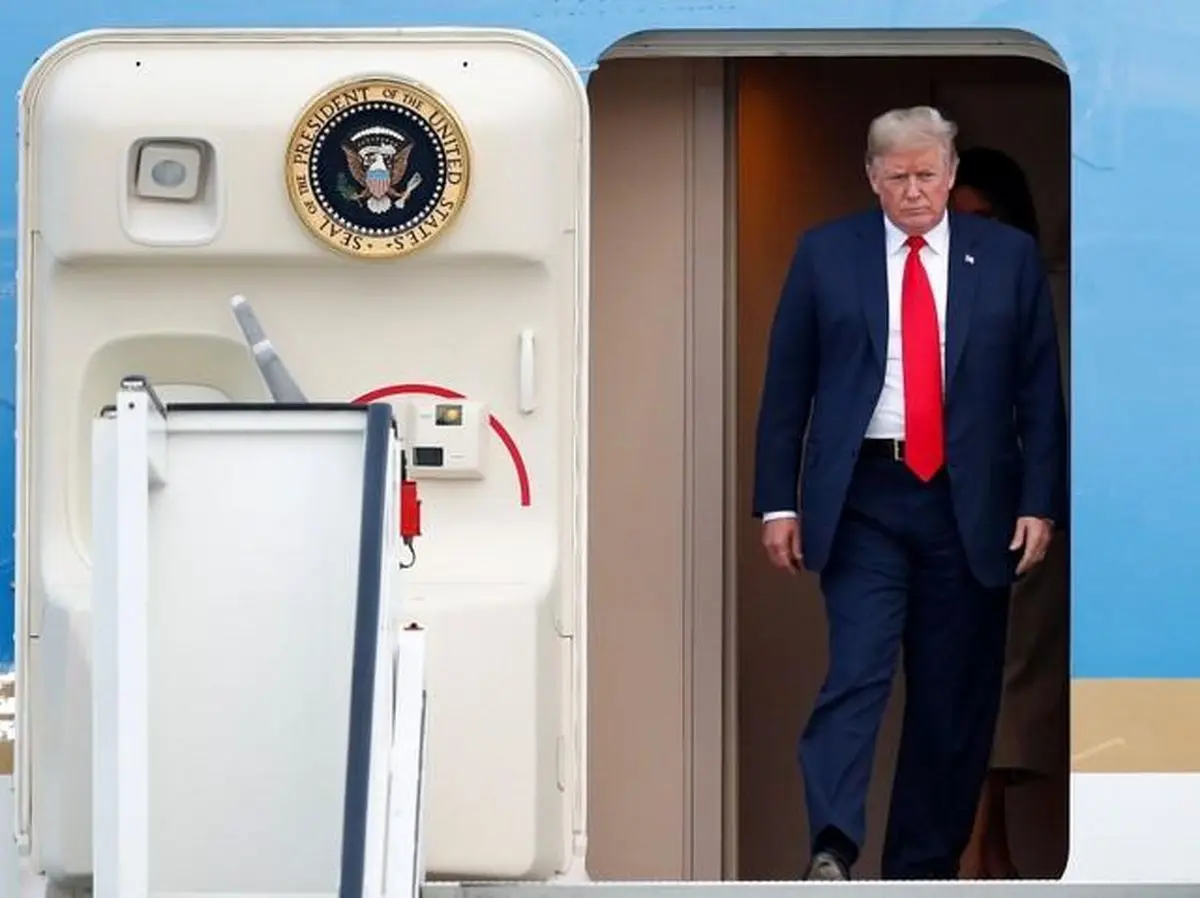Trump seen likely to support NATO's Article 5 but wants more spending

President Donald Trump will likely declare U.S. support for NATO’s mutual defense doctrine while pressing for increased spending commitments from NATO allies at a high-stakes summit in Brussels, a senior administration official said on Tuesday.
Trump arrived in Brussels on Tuesday night for what is shaping up to be an unpredictable day of talks on Wednesday with North Atlantic Treaty Organization leaders given his volatile attitude toward allies he believes are not contributing enough to the collective defense.
He spent hours on Air Force One on the flight to Brussels debating with aides how to cajole NATO allies into contributing more defense spending to the alliance, the official said.
Shortly before landing, Trump fired off a tweet expressing his frustration.
“Many countries in NATO, which we are expected to defend, are not only short of their current commitment of 2% (which is low), but are also delinquent for many years in payments that have not been made. Will they reimburse the U.S.?” he said in one tweet.
Under a 2014 agreement, each member state is required to boost military spending to 2 percent of its gross domestic product by 2024. But NATO diplomats say only two-thirds of the 28 allies, excluding the United States, have a realistic plan to hit that level by then. The United States spent 3.57 percent of GDP on defense in 2017.
Still, the administration official said, Trump would likely reiterate U.S. support for the NATO treaty’s Article 5, a provision that means an attack against one ally is considered an attack against all of them.
Trump alarmed allies during a visit to Brussels last year when he did not specifically mention U.S. backing for Article 5, but aides said later that U.S. support was assumed and did not have to be mentioned.
The official said Trump was going into the NATO summit looking for commitments from allies to increase their defense spending and that his reaction was dependent on “how the morning goes” in his initial meetings with NATO leaders.
“You can expect to hear a lot about that – other countries taking on a bigger role and doing more,” the official said.
MEETINGS WITH MAY, PUTIN
After his meeting with NATO leaders, Trump is scheduled to visit London for talks with British Prime Minister Theresa May, days after her Cabinet was hit by two major resignations over the Brexit issue. He will then sit down next Monday in Helsinki for talks with Russian President Vladimir Putin, who U.S. officials believe would like to exploit divisions within NATO.
“So I have NATO, I have the UK, which is in somewhat turmoil, and I have Putin. Frankly, Putin may be the easiest of them all. Who would think?” Trump told reporters in Washington before departing.
Many members of Congress, including some of Trump’s fellow Republicans, have sought to reassure allies nervous about some of Trump’s statements, that there is still strong support in Washington for traditional allies like the country’s NATO partners.
U.S. Senator Bob Corker of Tennessee, a Republican who chairs the Senate Foreign Relations Committee, said he hoped Trump avoided a repeat of his G7 summit in Quebec City, when his demands on reducing trade surpluses with the United States prompted a bitter debate with allies.
“I hope that the right signals are sent to NATO in advance. I hope that nothing like what happened at G7 occurs,” Corker told Reuters.
END
